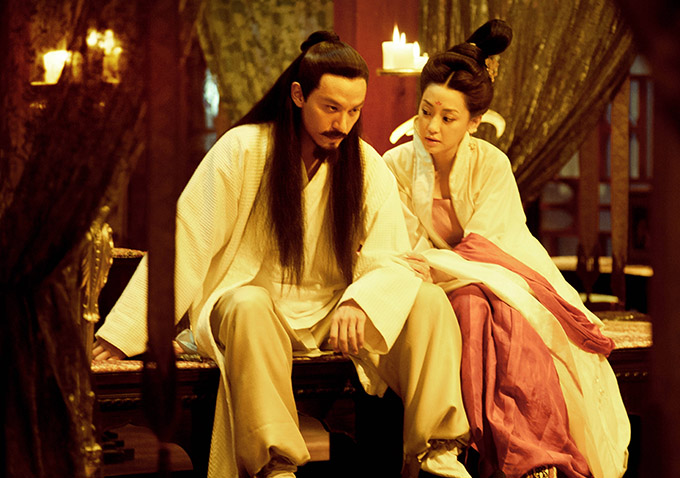By providing your information, you agree to our Terms of Use and our Privacy Policy. We use vendors that may also process your information to help provide our services. This site is protected by reCAPTCHA Enterprise and the Google Privacy Policy and Terms of Service apply.
Hou Hsiao-hsien on Bringing His Trademark Realism to Wuxia Masterpiece ‘The Assassin’
Tarek Shoukri

READ MORE: Watch: Beauty is Razor Sharp in Action-Packed ‘The Assassin’ U.S. Trailer
The drama tells the story of a princess-turned-assassin (played by Shu Qi) who was trained to murder corrupt politicians by a nun in exile. After struggling to complete one of her assignments, she is sent to kill her cousin, a military leader, as a punishment intended to toughen her up. The film’s simple premise is rendered in gorgeous fashion, as Hou’s ornamental visual style, exquisite framing and methodical filmmaking imbue one of the oldest genres in Chinese literature and cinema with an unparalleled degree of artistry and grace.
“In order for me to somehow bring that realistic portrayal and realism into this particular film, of course I needed to go back into all this archival material and do my research and my homework,” he said. “I relied on these historical details as a starting point to extend my imagination for the rest of the characteristics of the characters.”
 Speaking to whether or not his preferred sense of realism was at odds with the wuxia genre, he explained, “I wanted a film based on my own interpretation of the wuxia genre. This idea of defying gravity and people flying around in the air is just not something that I even contemplated doing.” Instead, Hou looked to Japanese samurai movies for inspiration Those types of martial arts practices, according to Hou, were “more in line of what I think the wuxia genre should be based on my own realistic depiction of human capacity.”
Speaking to whether or not his preferred sense of realism was at odds with the wuxia genre, he explained, “I wanted a film based on my own interpretation of the wuxia genre. This idea of defying gravity and people flying around in the air is just not something that I even contemplated doing.” Instead, Hou looked to Japanese samurai movies for inspiration Those types of martial arts practices, according to Hou, were “more in line of what I think the wuxia genre should be based on my own realistic depiction of human capacity.”
Even though he might have omitted some of the elaborate stunt work and fantastical elements typical of many works of wuxia from “The Assassin,” the film’s action sequences are mesmerizing nonetheless, punctuated most prominently by swift bursts of sword-fighting. Hou explained that because his actors and actresses were not trained martial artists, the preparation for the scenes was painstaking and time consuming, requiring large amounts of training, practice and choreography. Yet, this limitation also helped Hou determine how to best shoot the sequences with respect to time and space.
Hou recounted, “What I did is that I somehow divided all the action sequences into small fragments and I only shot one at a time in small dosages. They have to somehow complete all the choreography and all the movements and actions in that particular short fragment.”
 On “The Assassin,” Hou re-teamed with many actors, who by this point were familiar with Hou’s unique approach on set. “They know exactly what this particular scene is about and all I have to do is set up the lights in the way that I want and set up the camera with my cinematographer Mark Lee…and ask them to then go into this particular set that I’ve created for them.” he said. “Hopefully, they will be inspired by this particular location, this particular mise-en-scène. They then can immerse themselves into the characters and embody the movements and the mood that I want to create.”
On “The Assassin,” Hou re-teamed with many actors, who by this point were familiar with Hou’s unique approach on set. “They know exactly what this particular scene is about and all I have to do is set up the lights in the way that I want and set up the camera with my cinematographer Mark Lee…and ask them to then go into this particular set that I’ve created for them.” he said. “Hopefully, they will be inspired by this particular location, this particular mise-en-scène. They then can immerse themselves into the characters and embody the movements and the mood that I want to create.”
“The Assassin” will be screen for the public tonight and Saturday at Lincoln Center before opening in select theaters next week.
By providing your information, you agree to our Terms of Use and our Privacy Policy. We use vendors that may also process your information to help provide our services. This site is protected by reCAPTCHA Enterprise and the Google Privacy Policy and Terms of Service apply.















